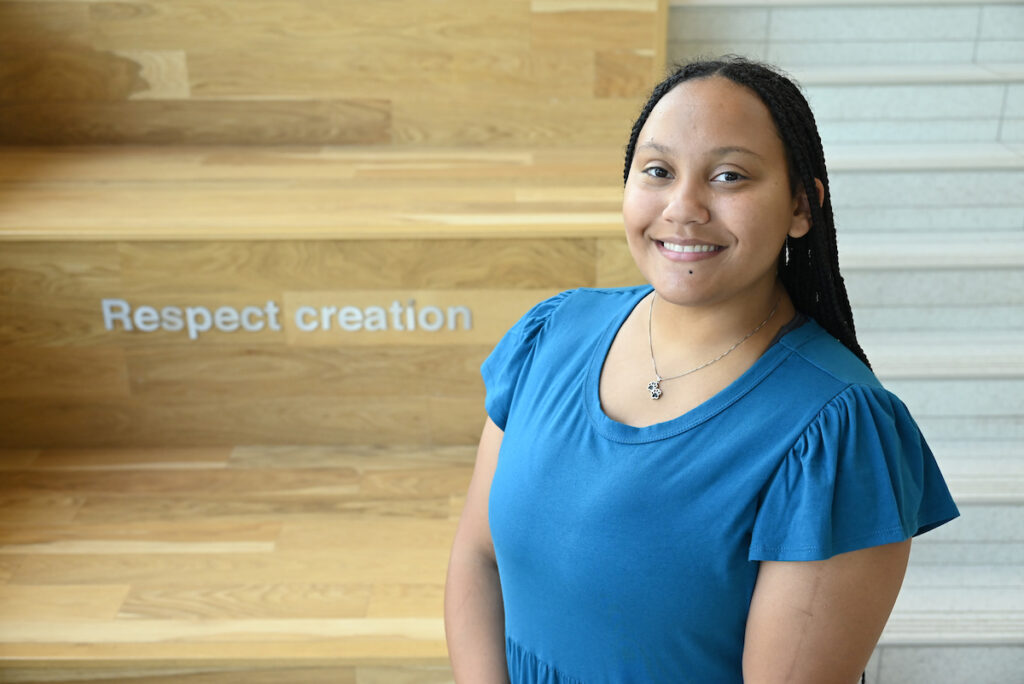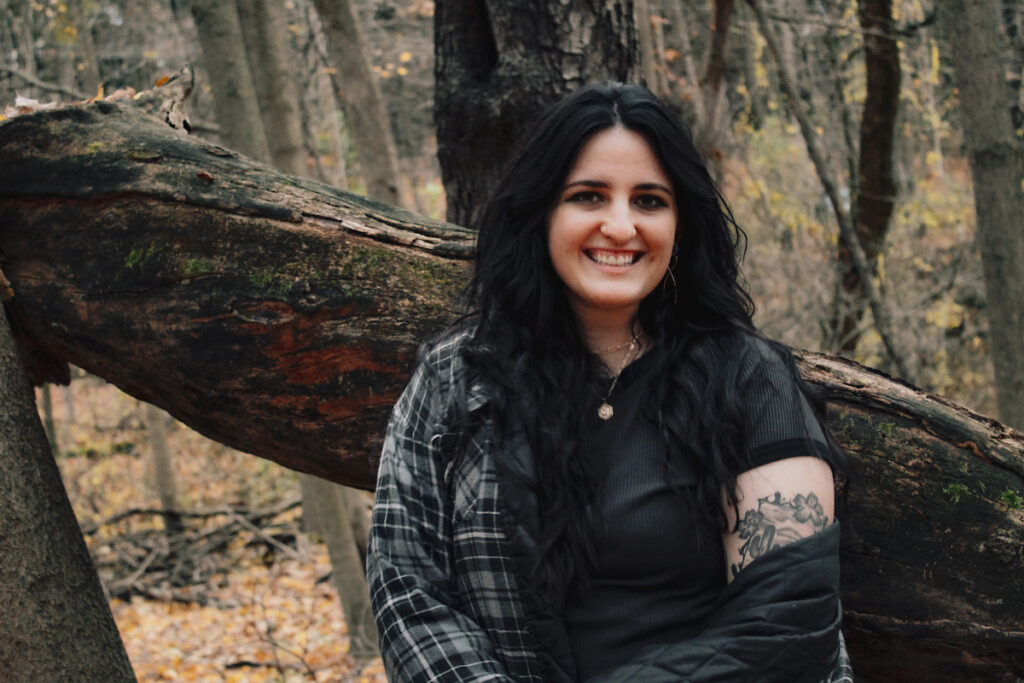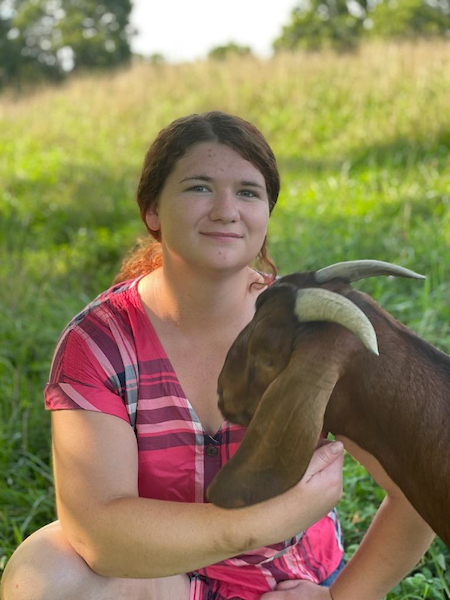Pre-Veterinary (BS)
Earn a Pre-Veterinary degree to help animals and their owners live their best lives.
- Available as
- Major
- Degrees/Options
- Bachelor of Science
- Length
- 4 years
- Locations
- Fort Wayne
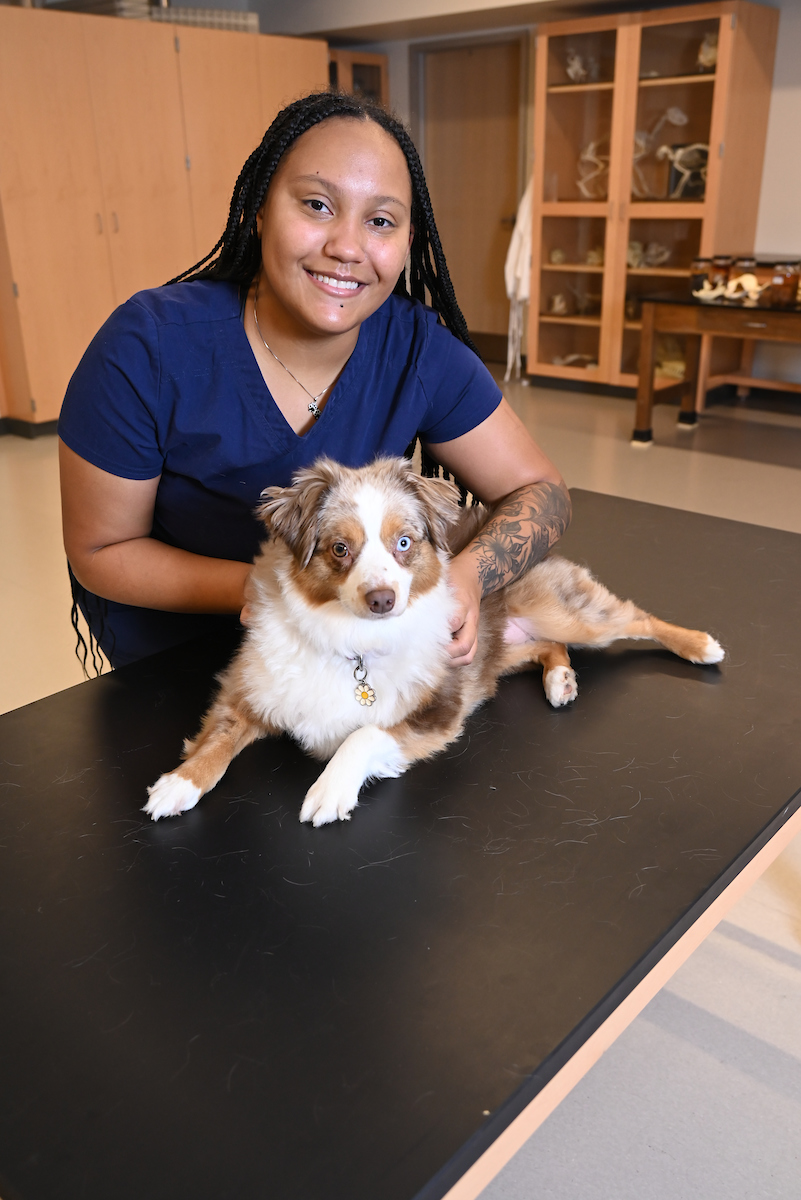
Becoming a Vet: Why Study Pre-Veterinary Medicine?
From caring for companion animals — our furry, feathered and scaled family members — to ensuring the country’s food supply is safe, veterinarians play an incredibly important role in society.
Pet ownership has more than doubled since 1988. Advances in veterinary medicine and nutrition, coupled with a bigger focus on preventative care, life expectancy for cats and dogs has risen. The Midwest, particularly, is seeing a shortage of livestock/food-animal veterinarians.
For these reasons and more, demand for veterinarians (DVM) nationwide is expected to increase 16% by 2029, and the need will be even higher in Indiana.
$100,370
National median salary for veterinarians
BLS.gov
#10
100 Best Jobs in America
U.S. News & World Report, 2020
19%
Expected increase in demand for veterinarians in Indiana through 2031, higher than the national average growth
BLS.gov
Why Saint Francis for Biology Pre-Vet?
Nationally recognized for its high-quality, values-based health professions programs, the University of Saint Francis is an ideal place to begin your journey toward becoming a vet.
Saint Francis’ comprehensive, academically rigorous pre-vet curriculum, coupled with practical learning experiences and personalized advising, will equip you for the GREs, MCATs, and, ultimately, for admission to a doctor of veterinary medicine (DVM).
Research and Real-World Experiences
As a biology/pre-vet major, you will learn by doing through project-based courses, community service, and even independent research. In addition to a strong science foundation, becoming a vet requires real-world experience with animals (and their owners!)
Off-campus, you will participate in job shadowing and pursue internships at local veterinary practices and hospitals, including Northeast Indiana Veterinary Emergency and Speciality Hospital and Southlane Veterinary Hospital. Biology majors can also prepare for careers with animals through real-world experiences through internships at places such as:
- Wildlife rehabilitation intern at Conservancy for Southwest Florida
- Water’s Edge intern at Pittsburgh Zoo and Aquarium
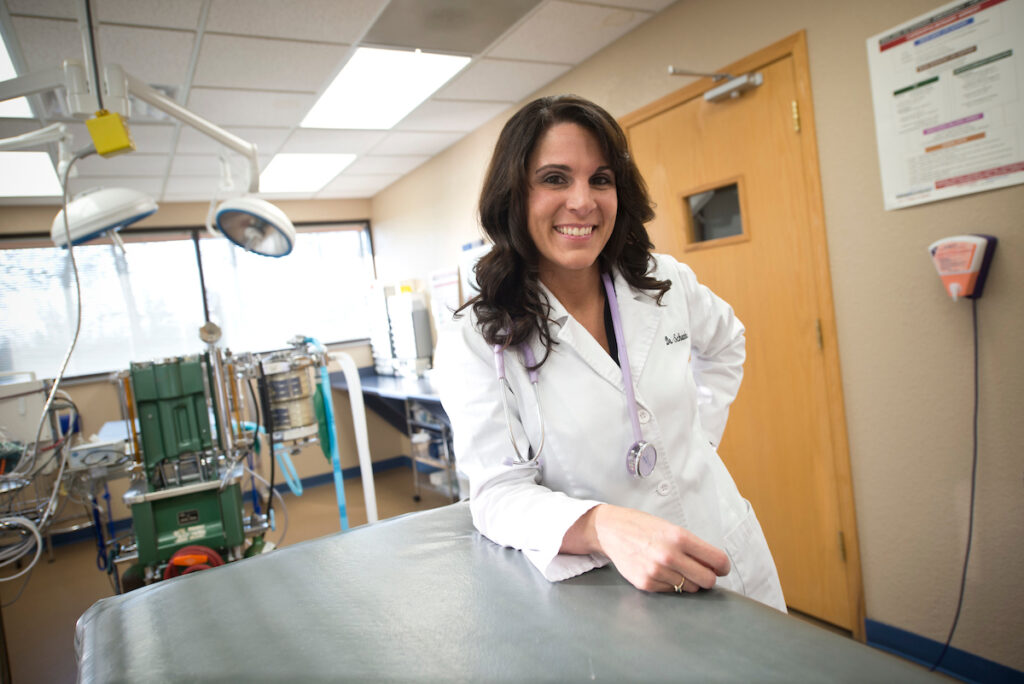
“Saint Francis had everything I needed. I knew the faculty, they knew me, and the instruction was one-to-one.”
Dr. Theresa Schenkel ’99 Veterinarian, Animal Hospital of Syracuse
“The Pre-Vet program can be molded into what you want to achieve, what you want to learn, and what you want to get out of it. There are many classes that I took outside of animal-based classes, such as Immunology, that taught me a lot about the veterinary field and even helped grow my knowledge as a veterinary assistant at my current job. One thing I can say for sure is that I would not have gone anywhere without the help of one of my many advisors, Dr. Amy Obringer. Any chance she got, she informed me about helpful classes not specific to my major and further opportunities to better myself as a pre-vet student and future veterinarian. I am currently applying to veterinary schools at the moment and I believe I’m more prepared than I ever thought I would be because of this program.”
Tianah Stuff Kelso ’24 Pre-Veterinary major
“The best part of the pre-veterinary program at USF is the curriculum overlap with the pre-meds and pre-PAs. Human and animal medicine are intertwined with each other. The program taught me how dependent one species is on the other concerning health, nutrition, and disease management.”
Olivia Obringer, ‘21 Michigan State University DVM candidate ’25
“The small class size at the University of Saint Francis provided a personalized learning environment, fostering stronger connections with professors and peers. In larger schools, it is easy to feel like just another number in the crowd; however, I was able to really stand out at Saint Francis. Additionally, the program offered numerous opportunities for me to develop essential leadership skills, further enhancing my overall educational experience.”
Jona Fletcher ’20 Ohio State University DVM candidate ’24
Expert Faculty and Innovative Facilities
As you take courses across the disciplines, from animal nutrition to vertebrate physiology, you will engage with faculty-scientists and working practitioners with a diverse range of research interests, including:
- Aquatic ecology
- Cell biology
- Community health education
- Conservation biology
- Invertebrate ecology
- Mammalian cell culture
- Wildlife biology
- Zoology
Many of our natural and biological sciences faculty have even spent some of their research careers with animals: armadillos, black bear, freshwater mussels and shorebirds to name a few.
Saint Francis biology pre-vet majors will build much of their skills and knowledge at Achatz Hall of Science, a state-of-the-art facility with modern learning spaces and cutting-edge laboratories.
Campus and Community Involvement
Saint Francis students will find many ways to get involved on campus and in the community. Organizations that might appeal to biology and pre-vet majors include:
- Pre-Professional Healthcare Honor Society
- Chemistry Club
- Eco Club
Additionally, you’ll often find biology and health sciences students, especially on exam-eve, studying together in Achatz’s meeting rooms and collaboration spaces.
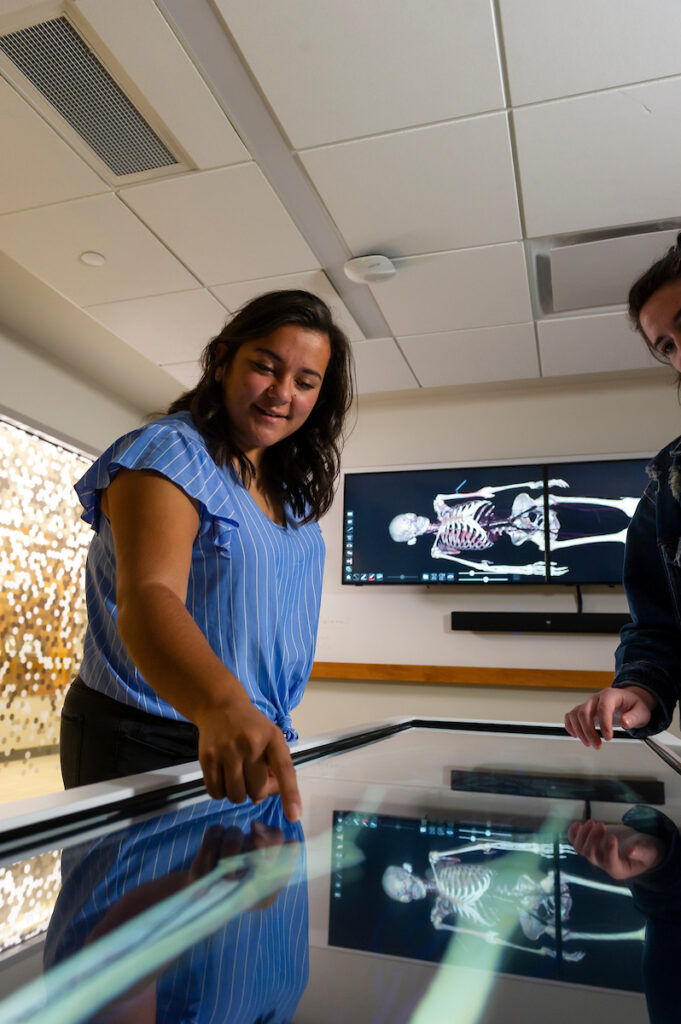
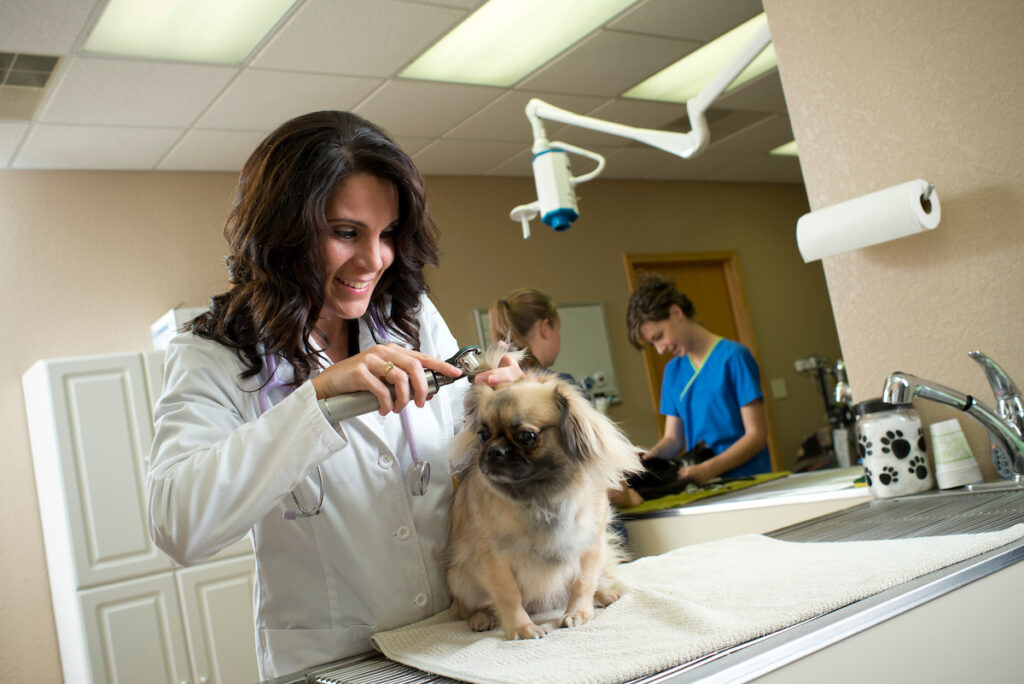
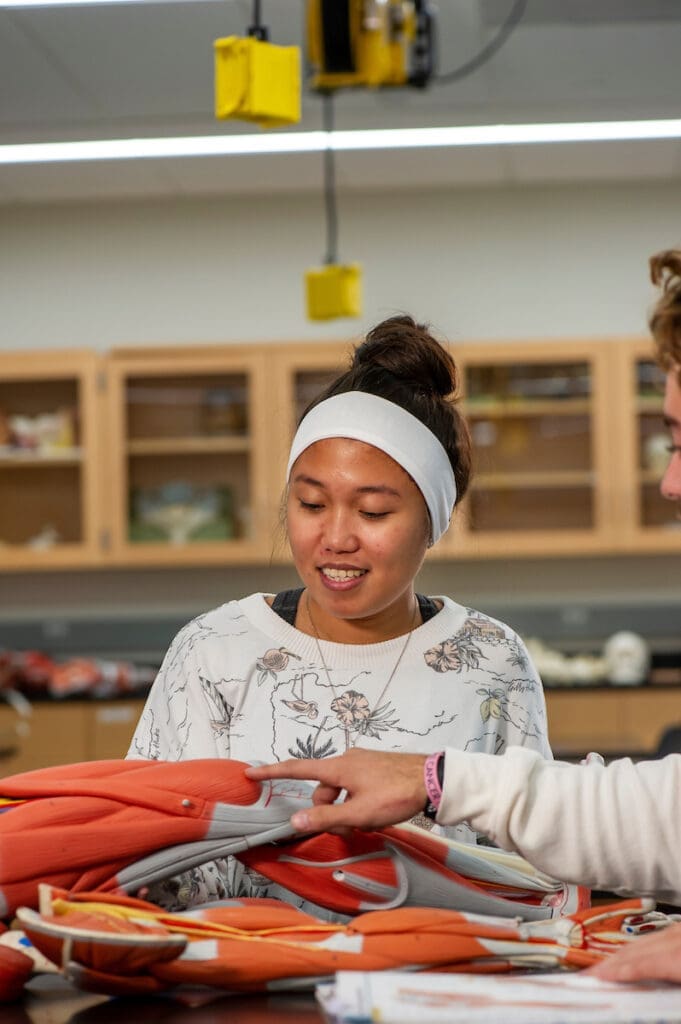
Veterinary Jobs and Other Careers Working with Animals
Veterinarians most often work in private or group practice; however, becoming a vet can also lead to careers with animals in settings like:
- Advocacy/public policy
- Agriculture
- Colleges and universities
- Government agencies
- Rescues/shelters
- U.S. Military
- Zoos and aquariums
The American Veterinary Medical Association (AMVA) offers an excellent veterinary jobs resource for students.
A bachelor’s in biology with a pre-vet focus can prepare you for other science- and health-related careers with animals — or people! Saint Francis alumni have found roles at:
- Allen Veterinary Hospital – veterinary assistant
- ARUP Laboratories – technologist in molecular biology
- Fort Wayne Children’s Zoo – animal care associate
- Texas State Aquarium – animal care technician
- Padre Island National Seashore – biological science technician
Acceptance: Graduate and Professional Programs
Our biology/pre-vet students have been accepted into doctor of veterinary medicine and Ph.D. programs at institutions such as:
- Miami University (Ph.D. in ecology, evolutionary and environmental biology)
- Ohio State University College of Veterinary Medicine
- Purdue University College of Veterinary Medicine
- University of Illinois College of Veterinary Medicine
